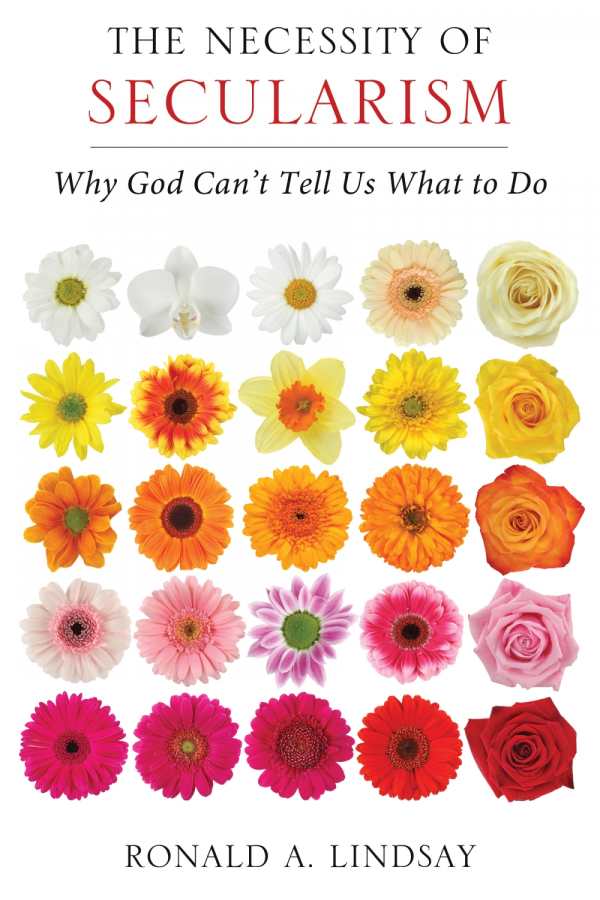The Necessity of Secularism
Why God Can't Tell Us What to Do
Lindsay avoids presenting arguments against the validity of religious doctrines and focuses on how religious and irreligious societies function.
No one questions that religion has played an important part in human society, but has it been a beneficial part? Can secular society function with the moral compasses religion provides? Ronald A. Lindsay presents the case for the advantages of nonreligious governance in The Necessity of Secularism: Why God Can’t Tell Us What to Do.
Former devout Catholic and now ardent secular humanist, Lindsay presents his case for a society bettered by religion stepping away from policy. He presents commonly cited arguments against secular societies, especially the notions that secular societies persecute religions and that society without God is without morals. Lindsay offers clear and succinct counterarguments, going so far as to say that morality and religion are in fact separate concerns and that secular societies protect religious practitioners, whereas theocratic societies persecute the unorthodox.
Lindsay backs up his statements with numerous historical references and a fascinating recap of how secular society grew in Europe as a response to religious violence. He doesn’t advocate the removal of religion from society, but rather he supports the separation of church and state fully. It’s much like Stephen J. Gould’s view of religion and science as “non-overlapping magisteria.”
The author is clear, and his concept is presented in a well-ordered manner throughout. He’s generally respectful of those who hold views other than his own. That said, he acknowledges early on that his readers are most likely those who already hold a perspective similar to his.
Lindsay writes, “In this book I will not argue against the existence of God, nor will I ridicule theistic beliefs. However, I will unsparingly criticize the view that religious doctrines should be allowed to dictate public policy.” And, for the most part, he does just that. While it’s true he doesn’t openly ridicule specific beliefs, he does, however, frequently throw in sarcastic remarks that—to a reader who professes faith in God—might be tantamount to disrespect.
There’s a lot of thought packed into the slim volume, supported by copious footnotes and a clean, readable font.
The Necessity of Secularism may not change the mind of those who hold fast to the belief that faith in God is requisite for a just society. It will, instead, give a great deal of lucid and reasonable support to those who already feel church and state must remain apart.
Reviewed by
Jason Henninger
Disclosure: This article is not an endorsement, but a review. The publisher of this book provided free copies of the book to have their book reviewed by a professional reviewer. No fee was paid by the publisher for this review. Foreword Reviews only recommends books that we love. Foreword Magazine, Inc. is disclosing this in accordance with the Federal Trade Commission’s 16 CFR, Part 255.

